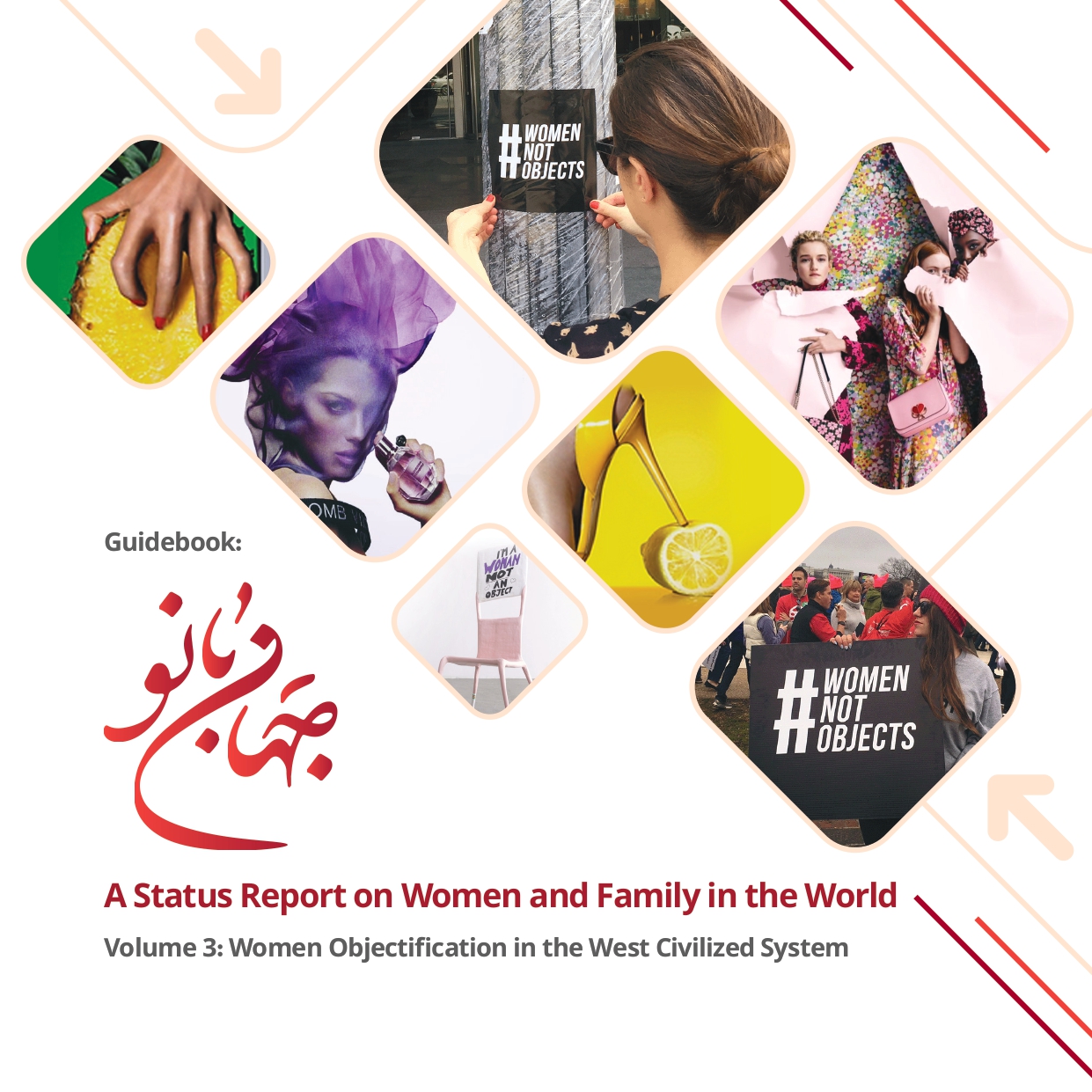A Status Report on Women and Family in the World Volume 3:Women Objectification in the West Civilized System
The 3'd volume of Jahan Banoo guidebook tries to shed more lights of the concept of women objectification in the west civilized system as well as its different philosophical, sociological, physical mental and legal dimensions.

The 3'd volume of Jahan Banoo guidebook tries to shed more lights of the concept
of women objectification in the west civilized system as well as its different philosophical,
sociological, physical mental and legal dimensions.
Introduction
The declination of human being status from its original and divine transcendental identity has
a long history in many human civilizations. There is no doubt that declining the human being
to a mundane thing and valuating it accordingly is a product of humanist, materialist and
liberalist civilization. The awful consequences of this approach to mankind and especially women
has ringed the warning bell for the elites and experts of women area as well as those who are
working in the field of sociology and social studies, as it is interpreted as objectification in
general and sexual objectification in particular.
In general, to the social philosophy, the objectification means treating human beings like
objects, apart from their innate dignity, and also dehumanization of them. Sexual
objectification also means any sort of exclusively sexual and instrumental treatment and
behavior to a human (generally women). (Arluke, 1988)
Sexual objectification means considering women as an object in service of men's sexual pleasure
rather considering them as independent and valuable human being in the first place. Although it
seems there are widespread difference between scholars in terms of examples of objectification, it
is crystal clear in certain cases like sexual use ofwomen in ads, arts, media, pornography.
(Szymanski, Moffitt, & Carr, 2011)
Some social science and philosophy scholars have, including Martha Nussbaum, have offered
definitions and examples for the objectification. She defines objectification as:
The human being objectification is crystalized through applying one or more of the following
properties:
1) Instrumentality: treating the person as a tool for another's purposes
2) Denial of autonomy: treating the person as lacking in autonomy or self-determination
3) Inertness: treating the person as lacking in agency or activity
4) Fungibility: treating the person as interchangeable with (other) objects
5) Violability: treating the person as lacking in boundary integrity and violable, "as something
that it is permissible to break up, smash, break into."
6) Ownership: treating the person as though they can be owned, bought, or sold (such as
slavery)
7) Denial of subjectivity: treating the person as though there is no need for concern for their
experiences or feelings (Nussbaum, 1995)
In 2009, Dr. Rae Langton proposed three new properties added to seven properties of Nussbaum:
1) Reduction to body: the treatment of a person as identified with their body, or body parts.
2) Reduction to appearance: the treatment of a person primarily in terms of how they look, or how
they appear to the senses
3) Silencing: the treatment of a person as if they are silent, lacking the capacity to speak
(Langton, 2009,
pp. 228-229)
Some scholars believe that using women's body for selling commercial products, allocating
animals' names or appearance to women and sexulisation of women and girls are among the most
important tools of women objectification in the contemporary society. In such societies women
and girls are appraised based on their sexual organs' size and females with more sexual
attraction are more popular in the sexual trade world. (Ferris Museum of Sexist Objects, n.d.)
The 3'd volume of Jahan Banoo guidebook tries to shed more lights of the concept
of women objectification in the west civilized system as well as its different philosophical,
sociological, physical mental and legal dimensions.
